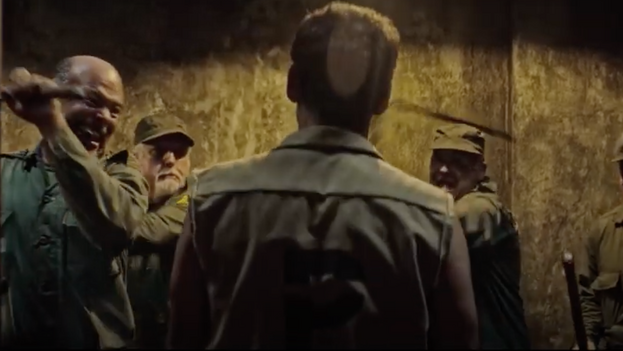
![]() 14ymedio, Pedro Corzo, Miami, 18 October 2022 — Cuban filmmaker Lilo Vilaplana recently announced that he had concluded the filming of Plantadas, a more than necessary historical document, which will do justice to the thousands of Cuban women who have been and are in prison for their struggle for freedom and democracy on the Island.
14ymedio, Pedro Corzo, Miami, 18 October 2022 — Cuban filmmaker Lilo Vilaplana recently announced that he had concluded the filming of Plantadas, a more than necessary historical document, which will do justice to the thousands of Cuban women who have been and are in prison for their struggle for freedom and democracy on the Island.
Vilaplana made a fundamental contribution to Cuba’s historiography when he filmed the epic Plantados, which shows the cruelty of the Castro prison system and the rage of the jailers, who apply the rules of Island totalitarianism. It also documents the patriotism of political prisoners.
This film promises to be at least as valuable as the previous one, because it records the experiences of the women who have faced the dictatorship and who, by their actions, ended up in the dungeons of totalitarianism, suffering a systematic violation of their rights, including that of life.
Cuba’s political prison for women has undoubtedly been the largest and most extensive in the American hemisphere for years. Its construction began in 1959 and is not yet finished, as reflected by journalist Yolanda Huerga in a work published on Radio Televisión Martí. In it, a young political prisoner, Rosa Jany Murillo, in response to a blackmail from her jailers, says: “I have nothing to learn. I have only one ideal, one principle, one concept: I want communism to fall, that there be democratic parties, that my people can be defended and served by a government. You don’t do it; therefore, I have nothing to regret.”
The courage of this young Cuban woman behind bars has been known in women’s prisons since the dawn of the Revolution. Behind those same bars, in different dungeons, thousands of women from different generations have demonstrated their commitment to freedom as did Cary Roque, Ana Lázara Rodríguez, Gloria Lasalle, Isabel Tejera, María Amalia Fernández del Cueto, Nelly Rojas, Maritza Lugo and Marta Beatriz Roque Cabello. We will learn about these heroines when Vilaplana and his team deliver Plantadas.
Trying to synthesize the heroism of the Cuban women in prison in these 63 years is almost an odyssey. There are many events to be noted — the shootings of friends of the cause, escapes, tortures, beatings, hunger strikes, deaths, separations from family, from their children for complying “with the Homeland,” the lack of the most essential resources, an infinite list of regrets that honors the deeds of these women, who always demonstrated the most worthy stoicism.
The teacher of every decent Cuban, José Martí, wrote “he who honors another honors himself,” and therefore it is right and appropriate to mention the person who, in my humble view, has promoted the filming of Plantadas like no other: Reynol Rodríguez, an activist in favor of democracy and the freedom of Cubans, who has dedicated his life to the fight against dictatorships.
Rodríguez is one of those people who understand that the struggle has many facets without denying any. He is a man of proven heroism, who participated in armed incursions against the dictatorship and supported with all zeal people like the unforgettable Vicente Méndez, who fell in combat a few days after arriving on Cuban coasts.
This fighter for freedom worked month after month to organize fund-raisers for this historical documentary on Cuban women. The organizing committee fully reached its objective, and I must highlight two members: Pedro Remón, another brave compatriot who never says no, and the son of Osvaldo Ramírez, a glorious martyr in the fight against Castroism who was the second head of the uprising of the Escambray mountains in the early 60s, also named Osvaldo Ramírez, another compatriot who joined all the efforts for democracy.
The exiled filmography dedicated to directly collecting the struggle for freedom has several filmmakers who, like Vilaplana, have demonstrated a commitment to Cuban art and reality: the pioneer Eduardo Palmer, Iván Acosta, Luis Guardia, Daniel Urdanivia and Wenceslao Cruz. We owe all of them, for their quiet efforts, a profound respect.
Translated by Regina Anavy
____________
COLLABORATE WITH OUR WORK: The 14ymedio team is committed to practicing serious journalism that reflects Cuba’s reality in all its depth. Thank you for joining us on this long journey. We invite you to continue supporting us by becoming a member of 14ymedio now. Together we can continue transforming journalism in Cuba.
